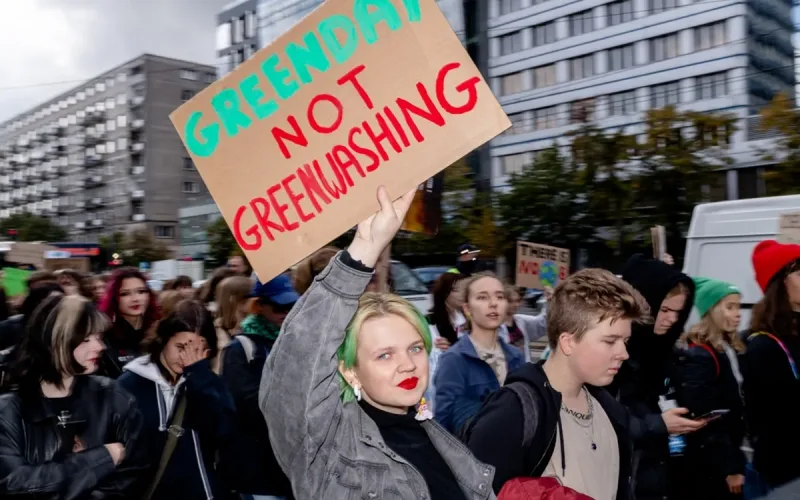Last Updated on April 26, 2023 by Ecologica Life
What Is Greenwashing?
Greenwashing is the practice of misleading the public into thinking a person/politician/country/organisation’s products, goals, and policies are more environmentally friendly than they are. This is done through media campaigns, public relations spin and distraction.
Anybody promoting an eco-friendly message can be accused of greenwashing. So, it is important to separate the facts from fiction before jumping on the train of accusation. Those who tend to come under scrutiny are big businesses and governments.
The Impact of Greenwashing
Telling the truth about our impact on the environment is more than simply a question of morality. Language is important, especially when it can be used to deceive. Any appearance of good will towards society or the environment might cover up unethical behaviour.
This means that companies might influence customers who have every intention of contributing to the solution to become part of the problem. This can happen when people consume more of a product that claims to be ‘sustainable’ even though in actual fact, it is less environmentally friendly than its competitors.
The risks associated with greenwashing go beyond the noticeable immediate repercussions. Deceiving language has an impact on how people interact with the sustainability movement. Which ultimately impedes the progress we need in order to stay below the 1.5ºC limit.
The same way that fake news ruins confidence in the media, greenwashing ruins confidence in sustainability claims as a whole. An online survey conducted with 3446 participants found that 83% of consumers felt misled by green & sustainable buzzwords in advertising. If a products “environmental promises” are misleading, it is understandably frustrating to those who are trying to make environmentally and socially responsible decisions.
Examples of Greenwashing
The Volkswagen emissions scandal was one of the most notorious examples of greenwashing. Some Volkswagen diesel engine car models contained a hidden “defeat device” that could detect when they were being tested for emissions.
Its goal was to reduce the emissions the vehicle produced while it were being tested compared to when it was really driven on the road. Volkswagen meanwhile, launched a significant marketing campaign highlighting the low emissions of its vehicles. This was discovered in 2015 and Volkswagen had to pay more than $33 billion in fines, penalties and financial settlements.
Some fossil fuel companies, included the largest in the US, ExxonMobil have made the absurd commitment to reduce their net greenhouse gas emissions to zero by 2050. There are still significant new drilling projects being planned by a number of these gas and oil companies with net-zero pledges that would cause the globe to exceed the goals outlined in the 2015 Paris Agreement.
Coca-Cola has been accused of greenwashing for sponsoring this year’s climate summit in Egypt COP27. Coca-Cola produced 120 billion single-use plastic bottles a year and has been ranked as one of the world’s top plastic polluters.
The famous drinks company defended its decision to sponsor COP27, stating that it shares “the goal of eliminating waste from the ocean and appreciates efforts to raise awareness about this challenge.” On the flipside, The Coca-Cola company recently raised 500 million euros ($494 million) for environmental initiatives, despite being ranked as the worst plastic polluter for four years running, alongside PepsiCo.
Most countries can be accused of some degree of greenwashing. Saudi Arabia makes for an easy target because it has committed to becoming net zero by 2060. They have, however, largely no plan for how to wean themselves off fossil fuels. The world still greatly depends on Saudi Arabia’s oil exports for its supply, and the nation’s economy and energy needs are also largely dependent on them.
How We Can Tackle Greenwashing
Identifying cases of greenwashing is not always clear cut at the Volkswagen case. Individuals and organisations can be involved in unintentionally greenwashing. It is also important to not accuse too quickly. If a business historically was not involved in the sustainability movement but have begun to take steps in the right direction, as long as they are accurately portraying these steps and not pretending to be 100% sustainable, then it may not necessarily be real greenwashing.
In the end, only research, evidence and transparency between politicians, organisations and the public can tackle greenwashing. Not just stating green goals, but showing a roadmap of how they are to be achieved, and therefore being held liable for them. Only then, can the truth prevail.
What do you think about this article? Leave us a a comment or suggestion








